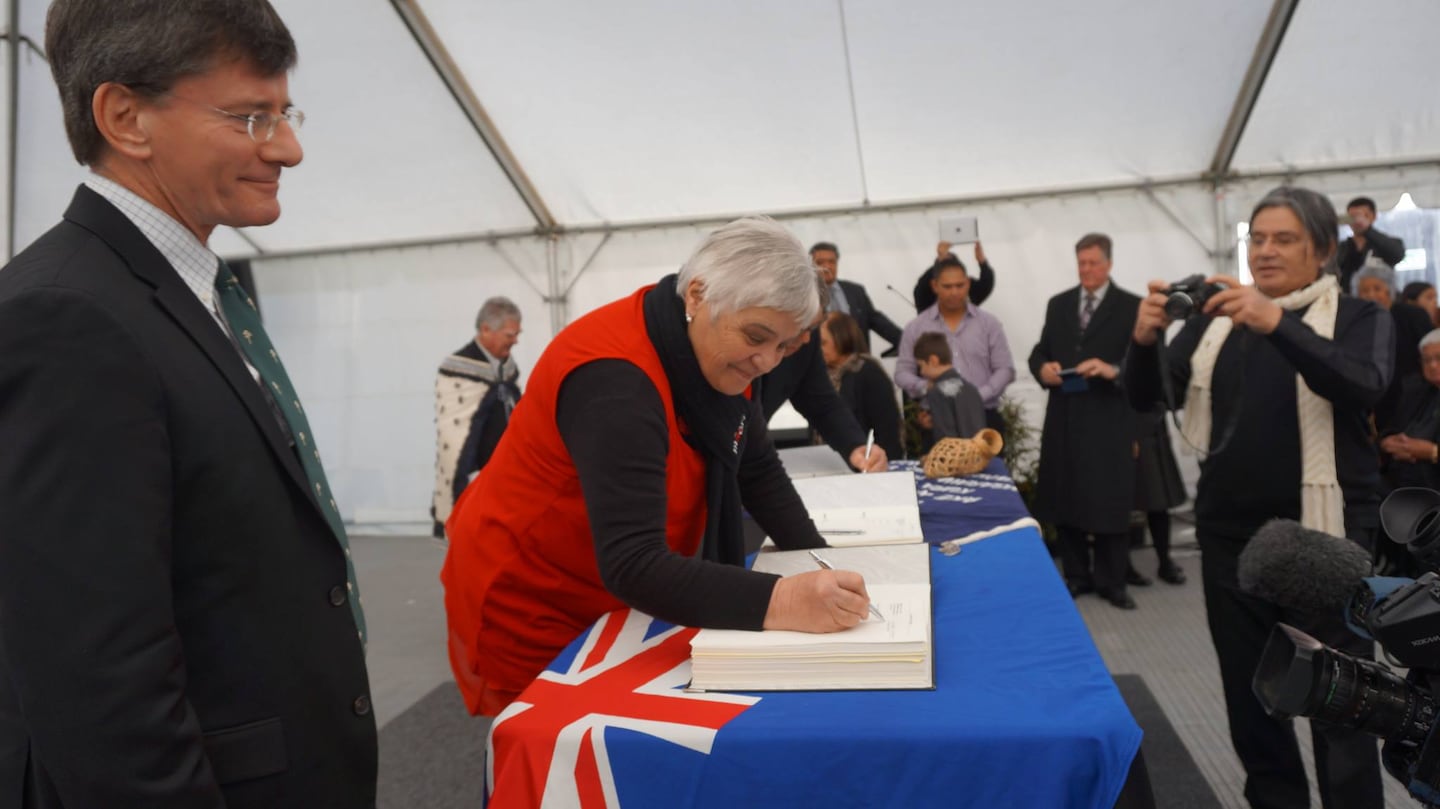Dame Tariana Turia says she has never anticipated political parties using the Treaty of Waitangi document as a way to further disenfranchise Māori from their lands and their indigenous rights in Aotearoa.
She believes Pākeha have also benefited from the Treaty.
“After all, they wouldn’t be here if it wasn’t for that document,” Turia says. “I mean they are the ones who have benefited from that document and now they’re trying to use it against us.
“You can’t have your cake and eat it too. You either believe in the document and believe in what it really stands for and the rights that it affords all of us or you keep your thoughts to yourself. I think lots of things too but I’ll have to think very carefully about expressing them.”
Turia isn’t convinced, despite ACT leader David Seymour announcing his Māori whakapapa status last year, that he has Māori at the very heart of his political agendas.
“All our lives, we were forced to be something that we weren’t, and I just don’t have any time for anyone who lives in denial about themselves.”
“And I think that our people have to stand up and be counted. If we’re not in Parliament doesn’t mean we don’t get a say. And we must always speak up. David Seymour makes me sick. When it suits him suddenly, he’s of Māori descent. We must stand and be counted and make sure that they know there will be a response if they even dare to try,” Turia says.
ACT leader David Seymour wants a debate and referendum on the Treaty of Waitangi. In an interview with Te Ao News earlier this month Seymour said what the Treaty meant in the future should be up for public debate, and he also challenged the notion of tangata whenua and tangata tiriti.
Seymour also said his biggest concern was with the Waitangi Tribunal and its processes over the past 30 years.
“What we’re opposed to is the way that it’s been interpreted in the last 30 years by the Waitangi Tribunal, by the courts, by the public service. We believe they’ve taken a document that was about universal human rights, a unity, and a sense that we’re all equally human and have the same basic rights, including to our property, which may have been badly taken in the past.”
Seymour was adamant race-based decisions in government were not going to achieve a successful society.
“What I do know is that New Zealand won’t be a successful society if we base all of our public services and all of our decision-making on the idea that there are two types of people with different types of political rights. We have to have one person, one vote. That’s not an academic version of democracy, as the minister for local Government once said. That is the whole point of democracy.”
But Turia says her words are not biased against the ACT party leader or the ACT party. She has enjoyed working alongside some of ACT’s finest.
“Well, I have to tell you that I was very fond of Rodney Hide. I got on really well with Rodney and, yeah, I think he was a really good man, and genuine in the things that he said,” Turia says.
During the pre-election campaign Seymour continued to raise the issue of a debate and referendum on the Treaty of Waitangi, as a non-negotiable condition for forming a government in coalition with Chris Luxon’s National.



